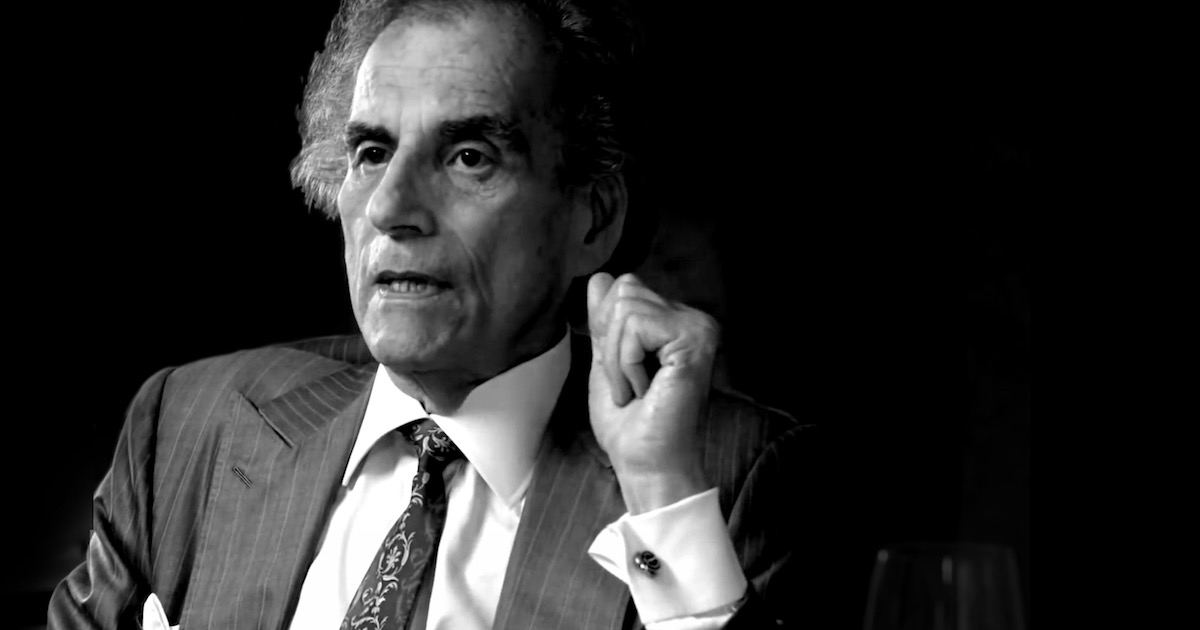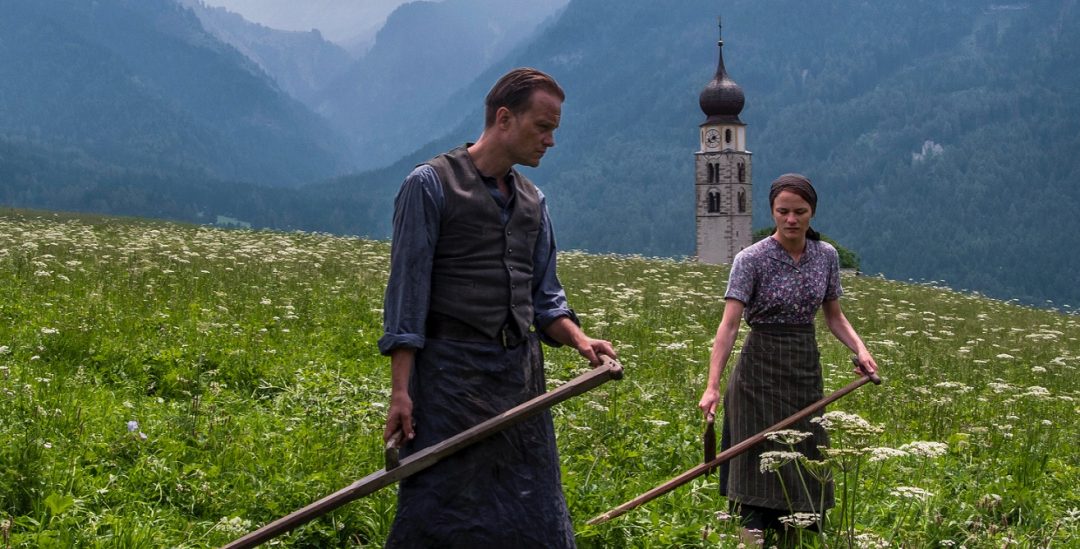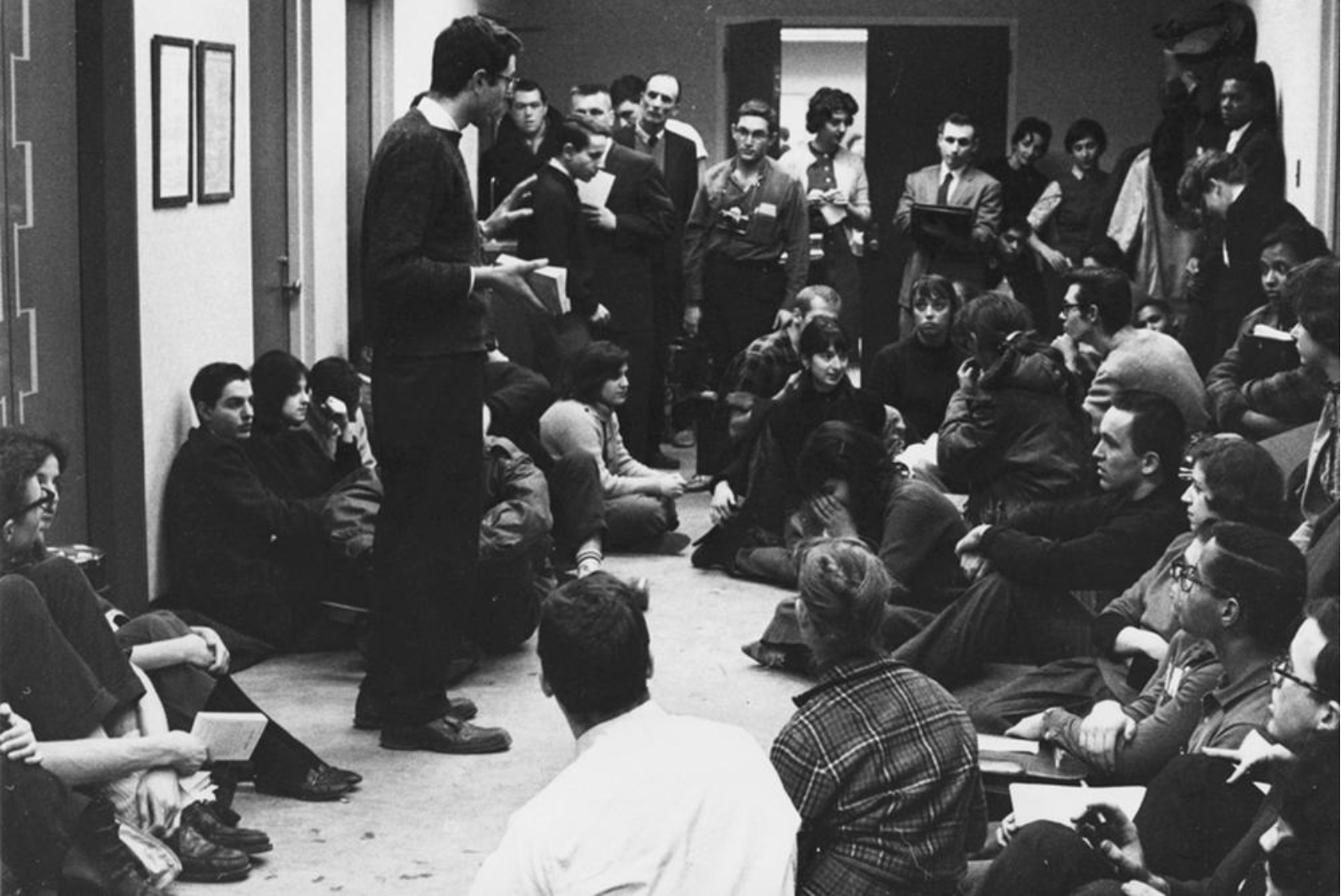
Human Nature, David Berlinski; Discovery Institute, 2019, 330 pages
“And straightway the whole sciolist herd . . . all the ‘mob of gentlemen who think with ease,’ and a terrible number of old ladies and boarding-school misses began to scream in chorus.” —Arthur Henry Hallam, “On Some of the Characteristics of Modern Poetry”
"Berlinski is something of a cartographer of our cosmic powerlessness. He points to these puzzling sigils of human experience, demanding we acknowledge them, while the sophists and money men distract themselves with Faustian illusions of secret knowledge and ultimate power."
A liberal arts professor at Harvard falls asleep at his desk and wakes up in the thirteenth century, now employed by the University of Paris. Initially, he struggles with a sense of existential vertigo. The smells, the sounds, the language and habits. But after a few days, he gets his bearings. He’s even able to flourish professionally. There is an orthodoxy of thought, after all. All he has to do is replace the old rules from the future (atheism, utilitarianism, a belief in the complete malleability of human nature) with the new orthodoxy of the past. It isn’t so much changing his orientation towards reality as switching his polarity. “As an experienced intellectual,” writes Princeton-educated mathematician and philosopher David Berlinski in the introduction of his latest book, Human Nature, “[the professor] would have been right at home. Had the same professor been returned to tenth- or eleventh-century Baghdad, he would have been flustered by its intellectual diversity. There is an irony in this worth remarking.”
It’s a fitting anecdote to begin Berlinski’s book, Berlinski himself being the very opposite of the hypothetical Harvard professor. Reverse the metaphor and have a figure from the Islamic Middle Ages—the atheist astrologer Abu Mashar, for instance—transported to modern day Harvard and you’d have the experience of Berlinksi writ small: a representative of heterodox intellectual variety almost romantically out of step with his time. Gathering up the wind and swimming against the torrent, as troubadour poet Arnaut Daniel put it. A few examples of what sets him apart:
He’s critical of Darwinian blind natural selection.
He’s critical of the efficacy of Big Data.
He defends essentialism. As in, he believes dogs are dogs because they’re dog-like.
He doesn’t think the world is getting better or safer. Or at least he thinks it’s impossible to say one way or the other.
At one point in Human Nature, Berlinski, a non-practicing Jew, describes the Holocaust as being an event, much like the crucifixion of Jesus, standing mutely outside of history but offering us a chance to meditate on the ultimate mysteries of human existence and misery. Strange, isolated coordinates which we struggle to interpret. Berlinski is something of a cartographer of our cosmic powerlessness. He points to these puzzling sigils of human experience, demanding we acknowledge them, while the sophists and money men distract themselves with Faustian illusions of secret knowledge and ultimate power. Berlinski is out of step with the moment because of the depth of his humility.
Nor does he belong to any ideological tribes. Some contend we’ve always been tribal and so tribes are unavoidable, but anyway certain times and places seem more prone to the social pressures of group homogenization. We’re living in such a time. Our country is such a place. We delude ourselves into thinking our commitments are objective. That we have access to vast resources of rationally-acquired self-knowledge. But we’re only hiding our superstitions behind a thick veneer of conceit. We actually navigate our social world impressionistically. Resonances and infinite refractions of social identity. All you need is one node of information about someone (he hunts, he’s Roman Catholic, gay, reads the London Review of Books) and everything else cascades. This dynamic is a partial explanation for the current knee-jerk reaction against free speech. One mistake and you’re an apostate in the wasteland. You watch Joe Rogan? Fascist. Dye your hair blue? One step away from removing your genitals. All the petty symbols of our shallow lives connected in a vast latticework of stupidity. An open conspiracy against having to engage the world in all of its complexity.
And so it is with Berlinski and his objections to Darwin. It’s an argument that his previous books focus on more specifically, but it comes up in Human Nature, a wonderfully varied book. Which is fitting, isn’t it? You’d expect a megachurch preacher from strip-mall country to be skeptical of the fossil record. You might imagine William Jennings Bryan losing the thread in Tennessee, mindlessly fingering an empty buttonhole that he missed on his shirt. And the reason you would think this, says Berlinski, is that “A very considerable apparatus of propaganda and persuasion was put at the disposal of the Darwinian community.” Darwin has long been a symbol of secular resistance to the tyranny of biblical literalism, as if those were the only two available options. But it’s easier to control people if everyone’s on the same page, and nothing quite gets people on the same page as transforming human thought into team sports. In Berlinski’s words, “The scientific establishment had long believed that in re Darwin at al. v. The Western Religious Tradition, Darwin would prevail. They expected to be assigned governance of the ideology of a democratic society.” And for the most part, they got what they wanted.
In truth, it’s the Darwinians who don’t trust the fossil record. There simply isn’t one that exists which supports the claims of orthodox Darwinian theory. And this is something that’s been known for quite some time. Berlinski writes in an essay entitled “A Majestic Ascent: Darwin on Trial”:
Every paleontologist writing since Darwin published his masterpiece in 1859 has known that the fossil record does not support Darwin’s theory. The theory predicted a continuum of biological forms, so much so that from the right perspective, species would themselves be seen as taxonomic artifacts, like the classification of certain sizes in men’s suiting as husky. Questions about the origins of species were resolved in the best possible way: there are no species and so there is no problem. Inasmuch as the historical record suggested a discrete progression of fixed biological forms, it was fatal to Darwin’s project.”
In other words, not only is the evidence missing from Darwin’s theories, but the underlying logic itself is “self-serving gibberish,” as Berlinski puts it. “There are gaps in the fossil graveyard, places where there should be intermediate forms, but where there is nothing whatsoever instead. No paleontologist…denies that this is so. It is simply a fact, Darwin’s theory and the fossil record are in conflict.” And though many scientists are quick to condescend to believers, what notions of blind-chance actually suggest—that “[w]ithin the blink of a cosmic eye, a universe in which all was chaos and void came to include hunches, beliefs, sentiments, raw sensations, pains, emotions, wishes, ideas, images, interferences, the feel of rubber, Schadenfreude, and the taste of banana ice cream”—require an ironic leap of faith towards divinization of blind chance. “Darwin’s theory of evolution,” according to Berlinski, “is the last of the great nineteenth-century mystery religions. And as we speak it is now following Freudians and Marxism into the Nether regions, and I’m quite sure that Freud, Marx and Darwin are commiserating with the other in the dark dungeon where discarded gods gather.”
Not that Berlinski throws his weight behind intelligent design. On the contrary, in “Disgusting, No?”, an essay on the cancellation of the documentary Darwin’s Dilemma at the Los Angeles Science Center, he says he has “never supported the theory of intelligent design, criticizing it in print, and in podcasts, and over the open microphone whenever I get my hands on one.” And yet. “I may have to change my mind. Nothing so commends the theory to my attention as the efforts by the scientific establishment to suppress it.” He’s joking, but it’s an honest joke. Berlinski doesn’t claim to have preferential access to answers to all of the big questions. He’s simply able to scan the field with a cold eye and observe where social power actually lays. And this is what makes him so important, a kind of existential humility, a cosmic agnosticism. A few things, precious few, we know for certain. Others we don’t. And the farther afield we stray from both basic logic and the recognition of the profound mystery at the heart of existence, the less certain we can be and the more easily we’re able to delude ourselves.
Still, there are a few things we do know. Dogs are dogs, for instance. And though such an obvious statement might smack of whatever the photo-negative of obtuseness is, it’s also a claim that should set both orthodox Darwinians and “gender-fluid artists” on their heels. Because “[w]hat is Darwin’s theory, au fond, if not the claim that something can be indefinitely modified over the course of evolution?” Which leads us to the question, of course, of when distinct species arise or fall away in specific organisms. And of what, exactly, human nature might be. Because, “[i[f human beings have an unlimited capacity to change, they could not form a species; and if they cannot (or do not) form a species, what is the subject of human nature? Or the point in studying it?”
Others have tried to have it both ways. Noam Chomsky, for one, who has said that one of the key differences between his granddaughter and his cat was that, exposed to certain stimuli, his granddaughter would naturally learn English while the cat would continue to meow. And while that’s true enough as it is, it doesn’t really clear up the issue, merely listing human traits or abilities. To this point, Berlinski writes:
It is one thing to show that with respect to human beings certain properties exist and that they are essential; and it is quite another to show that they are unique. The number nine is necessarily greater than the number eight, but so is the number ten. Much of the anxiety about human essentialism turns on questions of uniqueness, and not existence...The belief that human beings are alone in the universe because they are an accident in the universe is widely thought an acceptable, although disappointing, possibility. The belief that human beings are alone in the universe because they are unique in the universe is now among the forbidden thoughts.
Essentialism is reviled by postmodernists not only because it refuses to pretend that humans do not have essential properties, but also that these don’t even exist. But, as Berlinski notes, certain ignored or forgotten ideas from figures such as Michael Denton, Kurt Gödel, and Alvin Plantinga have nearly proven beyond a doubt that “[t]he human species is real, permanent, enduring, and unique.” Proving the obvious, as it were. And yet this simple and evident series of notions provide a handhold to descend the stairwell into the locus of a more profound doubt. Admission of what little we do know provides a sturdy platform from which to interrogate the vapid bromides of certain Enlightenment-cheering neo-Benthamites.
Whigs, with their notion that the moral history of man is one of constant improvement, remain the provincials they always were. Steven Pinker is the mascot professor of the neo-Whigs. In his book The Better Angels of Our Nature: Why Violence Has Declined, Pinker argues that “[t]hings are today not so bad…and since they were once worse, they must be getting better.” Channeling what amounts to an autistic tallying of human lives lost, Pinker avoids confronting what are actually much more interesting issues: What do we mean by “violence,” and can we really know what murder rates in the distant past might have been? For Berlinski, “Violence is not an uncontested idea…Behavior is no necessary part of violence since laws, institutions, attitudes and judgements may all be violent, and physical force is no sufficient condition for violence, since the threat of violence is often as effective at compelling behavior as its administration.”
What he’s suggesting is the familial similarity between violence and force, one often being the effect of the other. After Stalin, for instance, the number of murders administered by the Soviet state dropped. People had got the message. “To paralyze a large and complex society by fear is istelf an achievement of violence,” writes Berlinski, “for those paralyzed are afraid of violent death. Violence is not simply a matter of what is done but what might be done. No account of twentieth-century violence that does not encompass this distinction can be judged very sophisticated.” It’s a dynamic that seems lost on Pinker.
But even the numbers alone don’t tell the story that Pinker wants them to. The claim that the world is getting safer after the most brutal, most disgusting, and most inhumane century in the history of mankind—a century in which new languages and new philosophies had to be constructed in order to even begin to express the vast sinkhole of suffering and degradation—could only come from someone as deluded as a celebrity professor at an Ivy League school. Statistical reductions in murder rates are always a sleight of hand trick. Shift the variables an inch in any direction and you can make the numbers say whatever you’d like them to. As Berlinski writes, “homicide rates may always be reduced by an expansion of their reference class.”
And because these reference classes (times, locations, identities of victims, etc.) are so malleable, “homicide rates are unstable as statistics, and…unreliable as indicators of violence.” And yet Pinker insists on the facile argument that if the population grows, as the world population has, it follows that the “number of murderers and despots and rapists and sadists” do as well. And if the absolute number of victims stays the same, then “something important must have changed to allow all those extra people to grow up free of violence.” To which Berlinski retorts:
Nothing of the sort is true in the case of homicide statistics; and nothing of the sort is true in the case of atrocities either. The supposition is backwards. The correct question is rather what changed in Nazi Germany, or Stalin’s Russia, or Mao’s China, or Pol Pot’s Cambodia to allow crimes never before seen to take place there? If the question is obvious, so, too is the answer. We have no idea.
Of course, mass murders aren’t homicides, despite being “crimes against humanity” in the larger sense. And “[i]f mass murders are not included in the homicide rate for the twentieth-century, then the homicide rate is no very good measure of violence; and if they are included, then the homicide rate does not indicate a long-term trend in declining violence.” But the focus on statistically proving that the suffering of all the victims of the twentieth century was somehow less significant than, say, the death of a soldier in the battle of Waterloo, itself betrays a terribly shallow sense of the human condition. I’m reminded of the Sarah Silverman joke where her young niece says that sixty million Jews died in the Holocaust and Silverman, the gen-x comedian, corrects her to six. “What’s the difference?” the niece laments. “The difference is that sixty million would be unforgivable.”
In this sense, Pinker the Whig and the blue-haired social justice warrior are engaged in the same solipsistic, parallel play, reducing the human experience to units that can be easily counted and manipulated. It’s impossible to know whether humans suffered less during the twentieth century than they did during the seventh. But it seems reasonable to believe that since Jeremy Bentham at least intellectual culture has trended autistic. Bentham insisted that everything was measurable, if only converted to quantifiable utility. And utility itself could be measured as money. He infamously claimed that he could rule India from his study, if given the right information. Pinker makes the same claims, only instead of India he lays claim to the entire human past. Neither is much interested in the essential mystery of human experience. Neither displays an appreciation for tragedy.
It would be easy, and not entirely wrong, to consider Berlinski primarily a critic of the nihilism of the contemporary world. Which is to say that there are seams of energy running through his work hinting at a humanizing drive beyond merely the desire to argue a point. And so, as iconoclastic as he appears, he stands aloof but not alone. He’s in a distinguished crowd that consists of, among other people: Byung-Chul Han, Roberto Callasso, Theodore Dalrymple, and even the novelists Laszlo Krasznahorkai and Michel Houellebecq. Among contemporary philosophers, he is closest, perhaps, to John Gray, Thomas Nagel, and the late Jerry Fodor: all men who have refused easy answers, and the last two, like him, formidable critics of Darwinism. Berlinski argues forcefully, but every argument also contains an oblique gesture towards the vast mystery of human existence. Oblique gestures, after all, are the ritualistic movements through which humanity itself is cultivated.
Human Nature contains polemical essays and short interviews, but it’s also studded with gnomic parables. There’s the story of a rabbi who makes a deal with the devil to be wiser than he should. There’s the Borges-esque allegory of a blind man, a devoted wife, and a book which contains all knowledge. There’s the tale of a hotel with an infinite number of rooms. These are really the lifeblood of Human Nature, and, one gets the strong sense, the passion of Berlinski, mathematician, scholar, and wisdom-seeker. The parable of the rabbi, his brain turned to mush through the nearly divine ability to see, and commit fully, to the “other side” of any argument ends with the same lesson that Eliot taught us: Humankind cannot bear very much reality. Still, Berlinski teaches us, we do require at least a modicum of truth.

